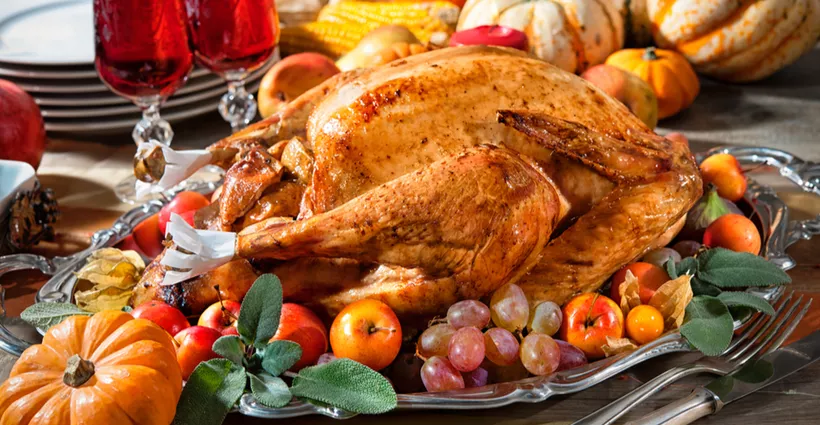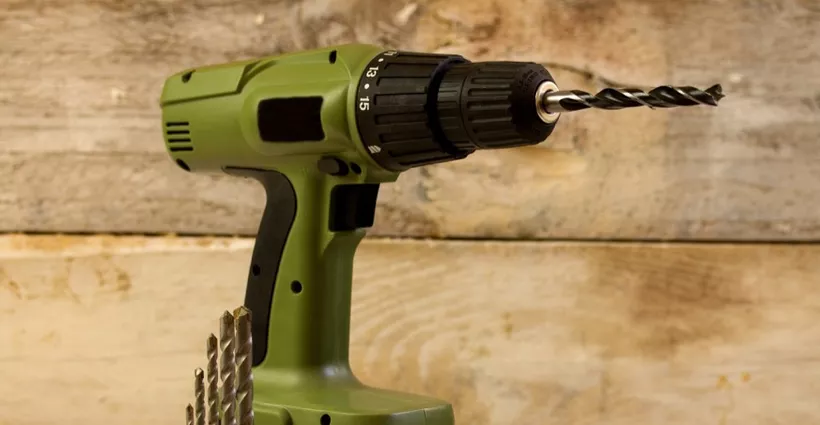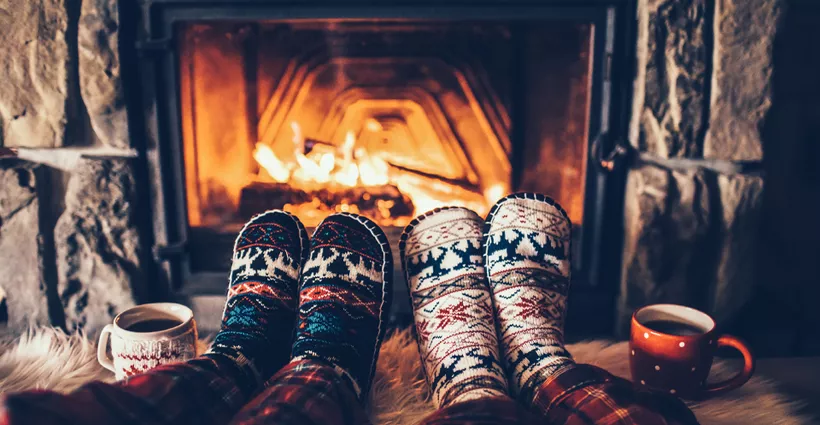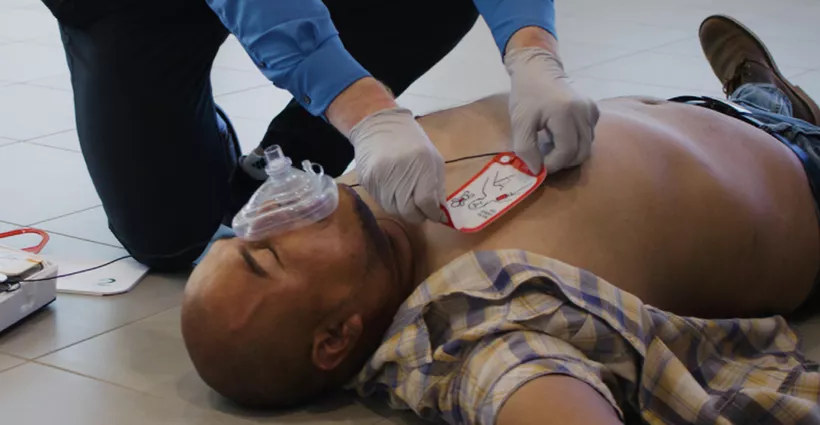Holiday Safety Tips for Your Home and Travel

Thanksgiving Safety: Prevent Home Cooking Fires
December 21, 2022
30 Tips for Hand and Power Tool Safety
February 6, 2023Emergency Care
As we move into the winter months, many will be traveling to see loved ones or hosting friends and family during the holiday season. While this time of year is full of celebrations, popular holidays like Thanksgiving and Christmas can present potential danger for those on the roads and at home.
Fortunately, there are simple safety precautions you can take to keep your family safe. Here are some of our top holiday safety tips.
Tip #1: Celebrate a Fire-safe Holiday Season
Between decorating and cooking for various holidays, there’s ample opportunity for accidental fires —leading to burn injuries and property damage.
Use these fire safety tips to reduce potential fire hazards throughout the holiday season:
- Cooking fires are the leading cause of home fires and home injuries, so be sure to supervise the kitchen at all times and keep flammable items (e.g. oven mitts, wooden utensils, food packaging, etc.) away from your stovetop. Understand the dangers associated with using turkey fryers and take proper safety measures if you choose to use one.
- Christmas tree fires cause on average $10 million in direct property damage each year. When using a live tree, make sure it has plenty of water and is placed at least three feet away from any heat source (e.g. fire place, space heater, flame candles, etc.). If using an artificial tree, make sure it’s labeled as “fire resistant”.
- Follow package directions for holiday lights, including the number of strands of lights that can be plugged into one socket and properly using indoor lights versus outdoor lights. Always inspect light sets for broken sockets, frayed wires, and loose connections.
- December is the peak month for home candle fires. Place candles at least one foot away from flammable materials and never leave unattended candles burning, especially with small children nearby.
- Teach all family members how to use a fire extinguisher before its needed.
Additionally, the National Fire Protection Association has many resources related to fire causes and risks.
Tip#2: Make Food Safety a Priority During the Holidays
Good food goes hand-in-hand with good company during holiday celebrations. And good food starts with safe preparation and ends with proper leftover storage to reduce the potential for food poisoning and other safety concerns.
Consider these simple tips for handling food safely:
- Wash hands, utensils, and surfaces frequently when preparing or handling food.
- Separate raw meat, poultry, seafood, and eggs from other foods.
- Cook food until it reaches a safe temperature. Keep food hot (140° F or above) after cooking if you aren’t serving it right away.
- Store leftovers properly by refrigerating perishable foods within two hours.
Don’t forget to consider the eating abilities of young children when preparing their holiday food. Foods like grapes, hot dogs, raw vegetables, etc. should be cut into age-appropriate sizes to reduce choking hazards.
Tip #3: Stay Safe on the Roads
If you’re traveling by car during the holidays, you’re at greater risk of injury or fatality than other forms of transportation. You might encounter weather hazards, increased traffic on the roads, and distracted or impaired drivers along your route.
So, it’s important to take road safety steps, such as:
- Prepare your vehicle for winter weather conditions in your area.
- Stock an emergency kit in your car, complete with a first aid kit, vehicle emergency supplies (e.g. jumper cables), flashlight and batteries, warm clothes, nonperishable foods, and drinking water.
- Avoid drowsy or impaired driving and remove distractions such as cell phone use.
You can find additional transportation safety tips through the Centers for Disease Control and Prevention (CDC).
Tip #4: Take the Dangers of Carbon Monoxide Poisoning Seriously
Carbon monoxide poisoning is a real risk all-year long. However, during the holiday months, people might unintentionally put themselves in harms way when trying to heat their home or vehicle.
Protect your family by installing carbon monoxide detectors (as well as smoke alarms) in your home. Additionally, use this “don’t” list for carbon monoxide precautions:
- Don’t leave your car running in your garage.
- Don’t use a gas range or oven to heat your home.
- Don’t use a generator in an enclosed space.
- Don’t forget to have your fuel-burning appliances and chimney serviced annually.
Keep in mind that carbon monoxide is a “silent killer” as it is odorless and colorless.
Tip #5: Be Prepared to Help Family Members and Friends with CPR, AED, and First Aid Training
One of the best ways to be prepared for the winter holidays is to brush up on your CPR, AED, and First Aid knowledge.
Nearly 1,000 people experience out-of-hospital cardiac arrests (OHCA) each day in the United States alone. In most cases, these cardiac arrest emergencies happen in a home or residence setting.
Here are some additional sudden cardiac arrest statistics for reference:
- 5% of OHCA in children happen at home.
- 9% of OHCA in adults happen at home.
- Nearly 90% of OHCA are fatal.
All this to say, you could be called into action to save the life of a loved one during the holiday season.
Original post: Hsi


